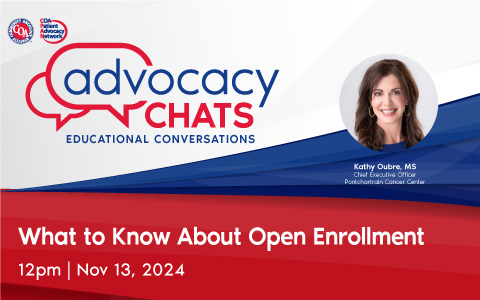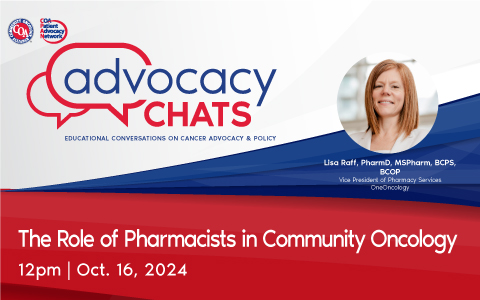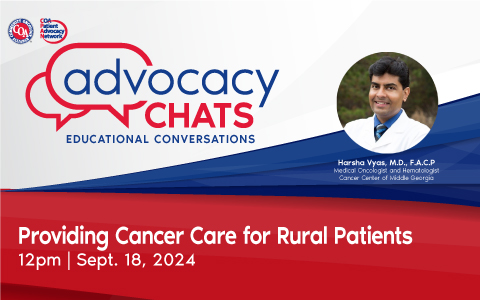Breast Cancer Awareness Month
October is Breast Cancer Awareness Month. It is fitting that this month’s CPAN Advocacy Chat features Brenda McGarr, RN, a nurse navigator and the CPAN Chapter Advocacy Leader at Augusta Oncology who will explain the depth of how nurses fit into the cancer care team. Brenda has been a nurse for 22 years and has spent 18 of those years in both the inpatient and outpatient oncology settings. She has worked as an infusion nurse, floor nurse and case manager, and as a nurse navigator for the last seven years. She has practiced in both the hospital and community oncology settings.
Infusion Nurses
Patients see their infusion nurse chairside when they are getting chemotherapy, but that is just a small part of what infusion nurses do. When the patient arrives, the nurse has already reviewed their lab values and discussed patient’s status with the oncologist. They discuss with the patient any changes or problems they may have then review the chart notes to get the most complete view of the patient. They also triage calls from patients to determine if a patient possibly needs to come in for lab tests or infused fluids. They also obtain prior authorizations for prescriptions and set up blood transfusions. Finally, each day they make chart notations for every patient seen in the office or who has called that day. Nurses’ duties go way beyond what patients might see and are the backbone of what is going on in a practice.
The Team Approach
Augusta Oncology uses a team approach to patient care. The team is comprised of two nurses, a medical assistant and member of the lab staff. The team reviews the charts for that day’s patients, so they know their status. In the community oncology setting, patients will have the same nurse each time they come in. A familiarity and a bond develop as the infusion nurse comes to know the patient. It is typical that the nurse will come to know the patient’s name, their spouse’s name, and eventually the patient’s dog’s name.
The team communicates with the oncologist keeping him/her informed of any changes or problems that might affect if or when the patient has chemotherapy. If labs taken the day of treatment are questionable, the team discusses the best next steps with the physician. There is a constant exchange of information among the nurses, the physician, and the pharmacist in preparation for treatment.
The In-House Pharmacy
In many practices, including Augusta Oncology, there is an in-house pharmacy where chemotherapy drugs are mixed and prepared in a specially vented area with a controlled ventilation system as regulated by state pharmacy boards. Any questions patients may have about the cost of chemotherapy drugs or what insurance will cover are handled by Patient Account Representatives. These reps are skilled in addressing cost issues and finding patient assistance programs or co-pay cards. They are a huge part of the care team.
Personal Cancer Care
Patients may arrive for treatment scared, confused or sometimes difficult. The infusion nurse learns to recognize these emotions and help the patient understand their treatment and be more comfortable with their care. Cancer care has changed over the years and this change has affected the role of nurses. In many cases the individualized touch has been lost. Community oncology has worked hard to retain personal care for their patients. If a patient is hospitalized, a community oncologist will see the patient in the hospital. For many specialties it is rare that the physician will see the patient while in the hospital.
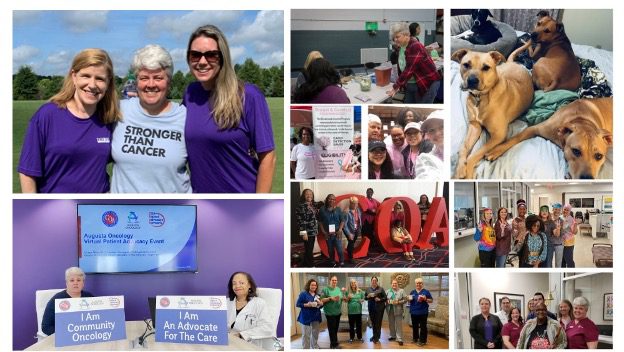
Burn-Out & How it Affects Caregivers
Despite all best intentions, nurses may burn out. This has been more prevalent in the hospital setting than in community oncology. Of course, COVID-19 has demanded new practices and precautions that while vitally necessary, make a nurse’s job more difficult. The most profound COVID related change has been that family members who previously could be with patients during chemotherapy are no longer allowed in the chemotherapy area. Going into that first chemotherapy session alone can be a frightening and lonely experience for some patients. A nurse who really knows the patient can go a long way towards making them as comfortable as possible. COVID has caused patients to delay appointments, not just for screening, but also for treatment. Dealing with the various COVID related situations has been extremely stressful for nurses and can add to burn-out. To maintain the highest level of nursing skills, many nurses participate in outside activities to advance their learning. Groups like CPAN and the Oncology Nurses Society provide continuing education.
Ringing the Bell!
It is a tradition that patients ring a bell to signal they have completed chemotherapy. Members of the staff join in helping the patient celebrate this milestone. Community oncology prides itself on the support this tradition provides and while not medical, understands the morale booster that celebrating the completion of treatment can be.
CPAN Advocacy Chats are monthly virtual events where a guest speaker is invited to join us to discuss issues important to advocacy and advocates in a 30-minute webinar.
CPAN Advocacy Chats are regular virtual 30-minute educational conversations about cancer advocacy and policy with a guest speaker invited to discuss issues important to patients and advocates. Summaries of previous Advocacy Chats are available on the CPAN website.
Past Advocacy Chats

